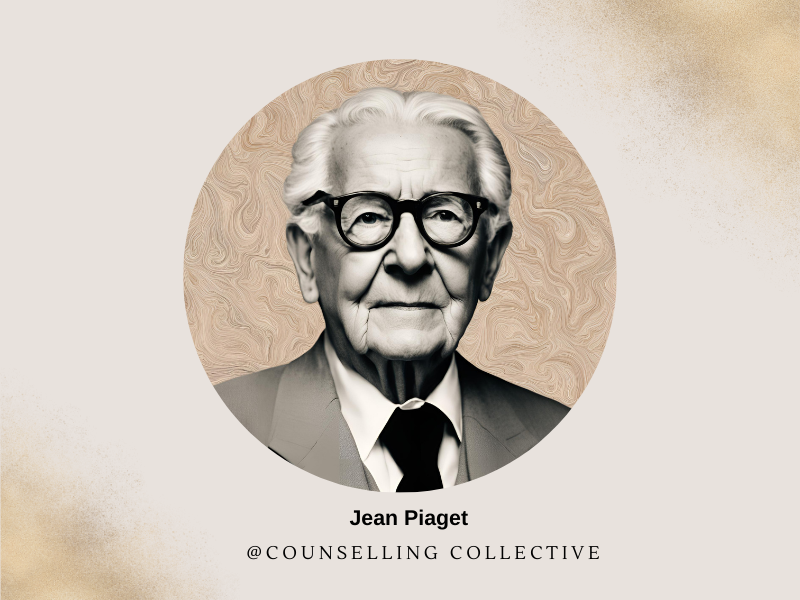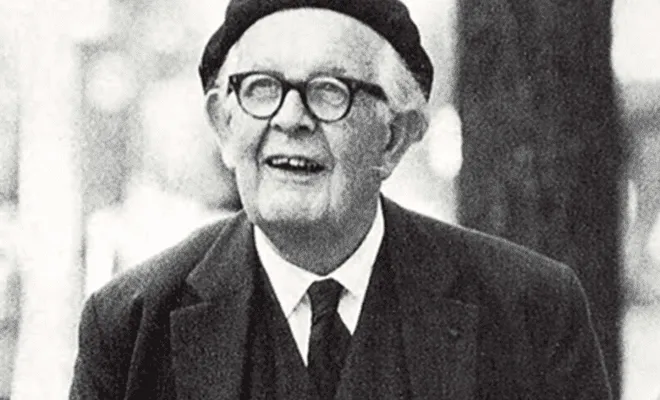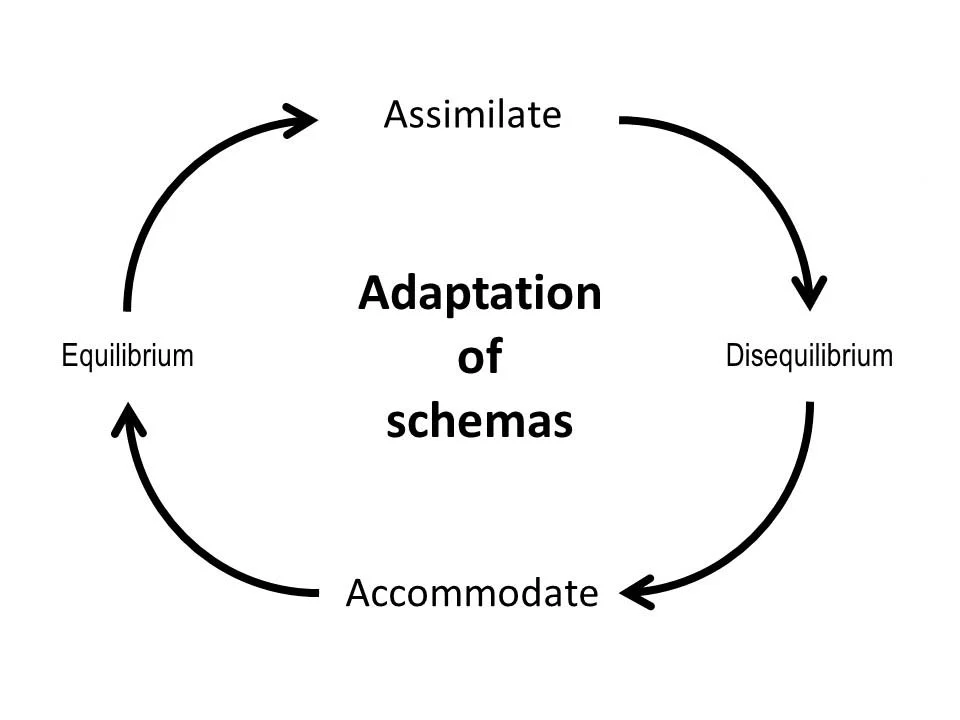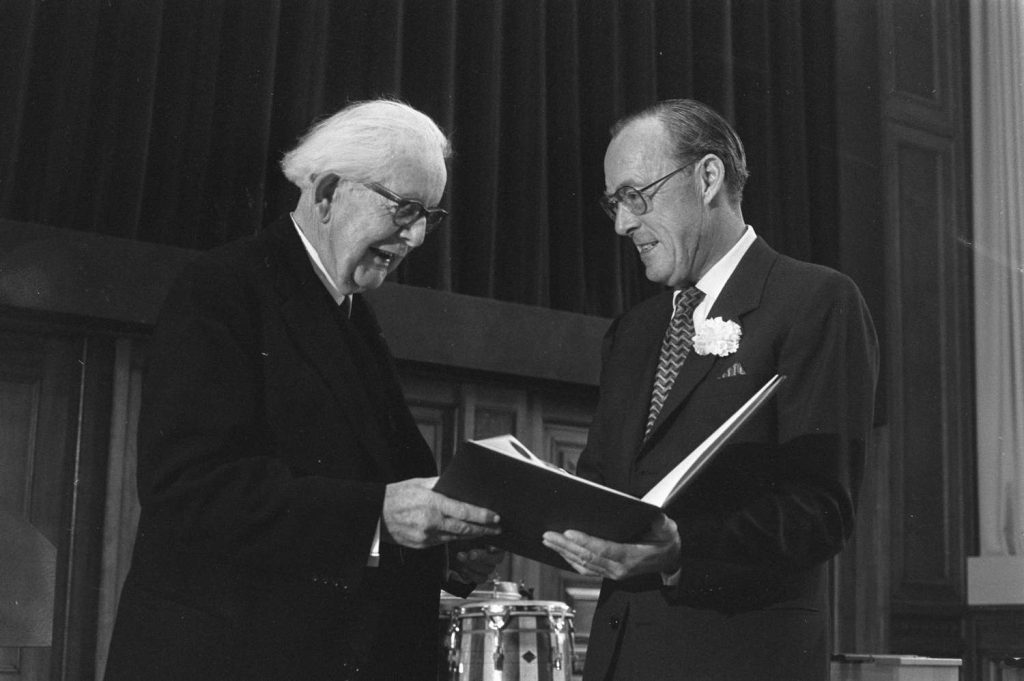Contents
Introduction
Jean Piaget was a pioneering Swiss psychologist and epistemologist known for his groundbreaking work in child development and cognitive psychology. His theories on the stages of cognitive development have profoundly influenced our understanding of how children learn and think. Piaget’s research has had a lasting impact on educational practices, developmental psychology, and cognitive science, making him one of the most influential figures in the history of psychology.

In this article, we will Look into Jean Piaget’s major theories of cognitive development, including his stages of learning and their implications. We’ll delve into his influence on educational practices and developmental psychology.
Early Life and Education
Jean Piaget was born on August 9, 1896, in Neuchâtel, Switzerland, into an intellectually stimulating environment. His father, Arthur Piaget, was a professor of medieval literature, and his mother, Rebecca Jackson, encouraged his early interest in natural science. From a young age, Piaget showed a keen interest in the natural world, particularly in biology and zoology. By the time he was ten, he had already published a paper on his observations of an albino sparrow, marking the beginning of his prolific academic career.
Image Source: firstdiscoverers.co.uk

Piaget’s early curiosity and intellectual rigor were nurtured by his parents, leading him to explore various scientific disciplines. His passion for understanding the natural world and its processes laid the foundation for his later work in psychology, where he sought to uncover the mechanisms of cognitive development in children.
Educational Journey
| Aspect | Details |
| Early Education | Piaget attended Neuchâtel Latin High School, where he excelled in his studies and continued to publish scientific papers on mollusks and other natural phenomena. |
| University of Neuchâtel | Piaget earned his doctorate in natural science in 1918, focusing on the biology of mollusks. |
| University of Zurich | Piaget studied psychoanalysis and experimental psychology, which sparked his interest in the development of human intelligence. |
| Research | Piaget’s early research involved clinical interviews with children, leading to his formulation of theories on cognitive development. His work at the Jean-Jacques Rousseau Institute in Geneva further developed his ideas on child psychology. |
Timeline of Early Influences
| Aspect | Details |
| Alfred Binet | Binet’s work on intelligence testing influenced Piaget’s interest in understanding the nature of human intelligence and cognitive development. |
| Carl Jung | Jung’s theories on the unconscious and archetypes provided a broader psychological context for Piaget’s studies. |
| Édouard Claparède | Claparède’s work in educational psychology and his focus on the application of psychological principles to education influenced Piaget’s approach to developmental psychology. |
| James Mark Baldwin | Baldwin’s theories on the social origins of thought and the development of consciousness were foundational to Piaget’s understanding of cognitive development. |
Major Theories and Works
Genetic Epistemology
Genetic Epistemology, developed by Jean Piaget, examines how knowledge and cognitive structures evolve from infancy to adulthood. It focuses on distinct developmental stages, the formation and refinement of schemas, and the processes of assimilation (integrating new information) and accommodation (adjusting schemas).

Stages of Cognitive Development
Jean Piaget is best known for his theory of cognitive development, which outlines how children’s thinking evolves through distinct stages. Piaget proposed that cognitive development occurs in four stages:
- Sensorimotor Stage (0-2 years): Infants learn about the world through their senses and actions. Key concepts include object permanence and the understanding that objects continue to exist even when they are not seen.
- Preoperational Stage (2-7 years): Children begin to use language and engage in symbolic play, but their thinking is still egocentric and lacks the ability to perform operations or logical thinking.
- Concrete Operational Stage (7-11 years): Children develop logical thinking and understand the principles of conservation, classification, and seriation, but their thinking is still tied to concrete objects and experiences.
- Formal Operational Stage (12 years and up): Adolescents develop abstract and hypothetical thinking, allowing them to reason logically about abstract concepts and hypothetical situations.
Image Source: Getty Creative

Schemas, Assimilation, and Accommodation
Jean Piaget’s theories on cognitive development introduced key concepts such as schemas, assimilation, and accommodation. These ideas explore how individuals organize and adapt their understanding of the world. Key elements include:
- Schemas: Schemas are mental structures that help individuals organize and interpret information based on previous knowledge and experiences. They act as frameworks for understanding and responding to new information.
- Assimilation: Assimilation occurs when individuals incorporate new information into existing schemas, adjusting their understanding to fit new experiences without altering the schema significantly.
Image Source: simplypsychology.org

Constructivism
Constructivism, as a theory of learning and development, emphasizes that individuals actively construct their own understanding and knowledge of the world through experiences and interactions. Key elements include:
- Active Learning: Constructivism asserts that learning is an active process where individuals build on their prior knowledge and experiences to understand new concepts.
- Personal Interpretation: It highlights that learners interpret and make sense of information based on their personal experiences, prior knowledge, and cognitive processes.
- Social Interaction: The theory emphasizes the role of social interactions and collaboration with others in constructing knowledge, reflecting the importance of cultural and social contexts in learning.
Image Source: El Lissitzky (1890-1941), Self-Portrait (‘The Constructor’), 1924 (detail).
Psychologists Influenced by Piaget

- Jerome Bruner – Bruner’s work on cognitive development and educational psychology was heavily influenced by Piaget’s theories. He emphasized the importance of discovery learning and scaffolding in education (Bruner, 1966).
- Lawrence Kohlberg – Kohlberg extended Piaget’s theories to moral development, proposing stages of moral reasoning that parallel Piaget’s stages of cognitive development (Kohlberg, 1969).
- Lev Vygotsky – Although his views differed in some respects, Vygotsky’s socio-cultural theory of cognitive development was influenced by Piaget’s work on the interaction between learning and development (Vygotsky, 1978).
- Howard Gardner – Gardner’s theory of multiple intelligences was inspired by Piaget’s emphasis on the diversity of cognitive abilities and the developmental progression of children’s thinking (Gardner, 1983).
- Albert Bandura – Bandura’s social cognitive theory incorporated aspects of Piaget’s constructivism, emphasizing the role of observational learning and cognitive processes in behavior (Bandura, 1986).
Impact on Psychology
- Influence on Modern Thought: Jean Piaget’s ideas have had a profound impact on various fields within psychology, including developmental psychology, educational psychology, and cognitive science. His theories have transformed our understanding of how children think and learn, emphasizing the importance of developmental stages and the active role of children in constructing their knowledge. Piaget’s work has also influenced research methodologies, promoting the use of clinical interviews and observational studies to explore cognitive development.
- Contributions to Related Fields: Piaget’s interdisciplinary approach has extended his influence to areas such as education, philosophy, and artificial intelligence. His theories have informed educational practices, leading to the development of curricula that align with children’s developmental stages and promote active learning. In philosophy, Piaget’s genetic epistemology has contributed to debates on the nature of knowledge and the processes through which it is acquired. In artificial intelligence, Piaget’s theory has inspired efforts to model cognitive development and create systems that mimic human learning processes.
Legacy and Influence
Long-Term Impact
Jean Piaget’s legacy endures through his lasting contributions to psychology and education. His pioneering work in cognitive development has laid the foundation for numerous subsequent theories and research. Piaget’s emphasis on the active role of children in their own learning processes and the importance of developmental stages continues to influence contemporary educational practices and psychological research.
Recognition and Honors
Piaget received numerous accolades and recognition for his work, including several honorary doctorates and prestigious awards. He served as director of the International Bureau of Education and was a founding member of the International Center for Genetic Epistemology. His contributions to psychology and education have been commemorated through various institutions and awards, underscoring his significant impact on these fields.
Criticism and Controversies
While Jean Piaget has garnered significant recognition for his contributions to psychology, his work has not been without criticism. Some argue that his stage theory fails to account for the variability in cognitive development among children and across cultures. Critics also point out that Piaget’s reliance on observational and clinical methods may lack the empirical rigor demanded by contemporary psychological research. Despite these criticisms, Piaget’s pioneering research on cognitive development remains a cornerstone of developmental psychology.
Conclusion
Jean Piaget’s life and work have profoundly shaped the fields of psychology and education. His theories on cognitive development, constructivism, and genetic epistemology offer valuable insights into how children learn and develop. By emphasizing the active role of children in constructing their knowledge and the importance of developmental stages, Piaget has provided a comprehensive framework for understanding and enhancing cognitive development. As his legacy continues to unfold, Piaget’s contributions to psychology and education will likely inspire future generations of researchers, educators, and practitioners.
Bibliography
- [1] Bandura, A. (1986). Social Foundations of Thought and Action: A Social Cognitive Theory. Englewood Cliffs, NJ: Prentice-Hall.
- [2] Bruner, J. (1966). Toward a Theory of Instruction. Cambridge, MA: Harvard University Press.
- [3] Gardner, H. (1983). Frames of Mind: The Theory of Multiple Intelligences. New York: Basic Books.
- [4] Kohlberg, L. (1969). Stage and sequence: The cognitive-developmental approach to socialization. In D. A. Goslin (Ed.), Handbook of Socialization Theory and Research (pp. 347-480). Chicago: Rand McNally.
- [5] Piaget, J. (1926). The Language and Thought of the Child. New York: Harcourt, Brace & Company.
- [6] Piaget, J. (1929). The Child’s Conception of the World. New York: Harcourt, Brace & Company.
- [7] Piaget, J. (1951). Play, Dreams and Imitation in Childhood. New York: W. W. Norton & Company.
- [8] Piaget, J. (1952). The Child’s Conception of Number. London: Routledge & Kegan Paul.
- [9] Piaget, J. (1952). The Origins of Intelligence in Children. New York: International Universities Press.
- [10] Piaget, J. (1955). The Construction of Reality in the Child. London: Routledge & Kegan Paul.
- [11] Vygotsky, L. S. (1978). Mind in Society: The Development of Higher Psychological Processes. Cambridge, MA: Harvard University Press.






